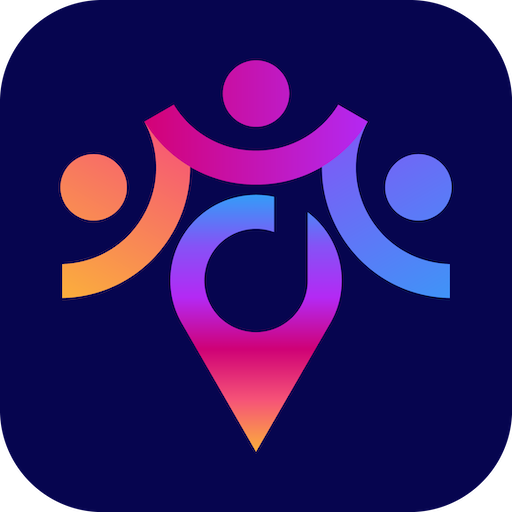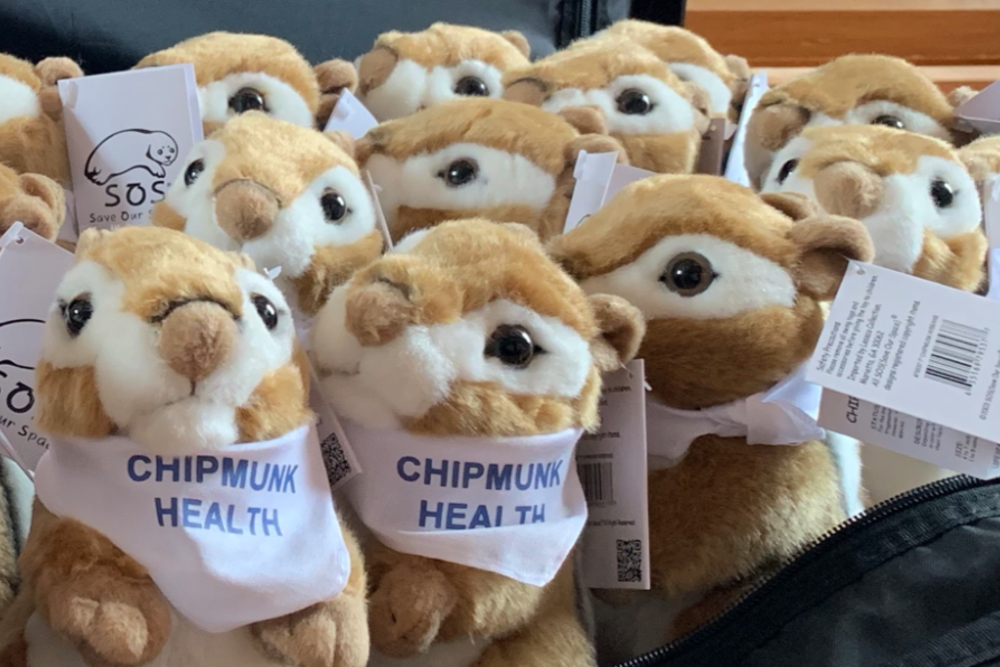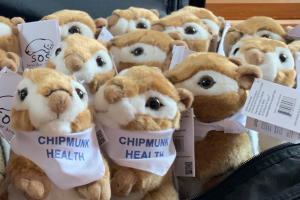02:39 – About Chipmunk Health
05:41 – Outlining a successful remote-model approach, during Covid
08:36 – The pleasant surprise of the tech savvy senior citizen
12:37 – The global movement towards a home-based healthcare model
13:10 – Looking back, what Chipmunk Health wished was more available
14:30 – Where Chimpunk Health is going over the next 6-12 months
17:30 – How to find out more!
Click the “Connect” tab to browse Web/Shopify/YouTube links …
Jason Bavington (00:02):
Hey everyone. It’s Jason with DUX — Your Local City Guide. And welcome back to another episode of our now world-famous blog…or so we hope. And as you’ve seen over the course of these blog posts over the past several weeks now, I’ve had the pleasure of speaking with a variety of businesses and organizations that have made some really interesting contributions to the community, to fellow industries, to cross industries, to individuals, to other companies during the Covid crisis. Now in the past, we’ve interviewed companies that have provided direct frontline support in terms of more tangible items, such as personal protective equipment. And we’ve seen companies 3D printing masks for frontline workers. We’ve interviewed distillers for providing hand sanitizer to frontline workers. And as well, we interviewed a consortium of companies that got together to produce ventilators for Canadians, in case they were needed.
Jason Bavington (00:55):
But while we’ve been focusing a lot on these tangible physical kind of items, we haven’t really looked more at the intangible tech innovative kind of digital items and innovations that are happening in that space to contribute to society, to the frontline workers, to the healthcare circle, to just help support everyone during the current Covid crisis. Now, to this end today, I have Erik Duijsens from Chipmunk Health. He is the founder of Chipmunk Health, and also we’re here in Guelph Ontario today, but we have the pleasure of streaming this call all the way from the Netherlands, which is really exciting. So welcome on the call today, Erik!
Erik Duijsens (01:32):
Thank you, Jason. Thanks for having me.
Jason Bavington (01:34):
My pleasure. It’s also kind of funny that, you know, we have been focusing on Guelph and a little bit in the States, but we basically been on the North American continent for these blog posts. And out of the two instances that we’ve gone international, the first instance was with another company based in Amsterdam, Netherlands. And now you’re the second who’s also in the Netherlands. So the Netherlands really seems to be where it’s at!
Erik Duijsens (01:58):
Yes, apparently, apparently. I wasn’t really aware, but yes. It would makes sense in a way, I guess.
Jason Bavington (02:05):
Kudos to everyone in the Netherlands for cranking up the goodness and keeping us all moving forward.
Erik Duijsens (02:12):
Okay, well, we are flattered by your attention. Let me put it that way.
Jason Bavington (02:15):
Well, you know, it gives me an excuse to jump across the pond if there’s an airplane sometime in the future to come visit, so.
Erik Duijsens (02:21):
If there is one, because I haven’t been on one for a very long time. Typically I fly back and forth every month, but now not so much, so.
Jason Bavington (02:28):
No, yeah. Not even a cruise ship or, you know.
Erik Duijsens (02:32):
No, you don’t want to go on that one.
Jason Bavington (02:34):
Probably not for a while. Anyway, the wonders of technology brings us together. So Erik, why don’t you tell us a little bit about Chipmunk Health, what Chipmunk Health is all about and kind of what you’ve been up to prior to Covid when, prior to when the world kind of changed and got thrown on its ear?
Erik Duijsens (02:50):
Yup. So Chipmunk Health we deliver turnkey virtual clinics to doctors. Can be GP’s. Can be specialists. Can be other healthcare providers. With a virtual clinic, they can monitor and supervise and treat patients at home. And in the meantime, our advanced data analytics helps them to make better medical decisions. That’s basically what it is. We give patients also access to their personal Chipmunk environment so that they get more insights into their health. But the main thing is that we collect clinically applicable data for doctors so that they can improve their decision making. That’s what we do.
Jason Bavington (03:28):
I see. Okay, so if I’m a patient working with my doctor and Chipmunk Health was an available solution, what would it look like? What would the steps that I would have to take, or my doctor would have to take, to integrate Chipmunk into my healthcare plan?
Erik Duijsens (03:42):
Yes. Typically Chipmunk Health works for patients with chronic conditions, that include these days post-Covid patients, post-Covid infections. So what your doctor would say is that you would be a suitable candidate for remote home monitoring. And he would let us know if you agree to be on the program, he would let us know. And we would send you a box full of equipment that your doctor thinks is necessary, like a blood pressure monitor or activity tracker or blood saturation meter and stuff like that. We include a little help with that, that you just plug into a power socket somewhere in your house, and then you can start measuring. And we collect the data, we process it, we analyze it and we model it to give your doctor and yourself valuable insights in how you are doing.
Jason Bavington (04:29):
That’s fantastic. And so, you know, you have, you’re based in the Netherlands, you also are based in Ontario. How does that work to be, you know, on two different continents and do your programs differ continent to continent?
Erik Duijsens (04:41):
Yes, it is a very big difference. So first of all, we have the development part we mainly do in the Netherlands simply because one of our strong partners is Phillips. And although the part of Phillips we work with, is funny enough, is headquartered in Boston, the people that we work with most are located in Eindhoven in Amsterdam. So, but also I guess it’s the open innovation culture culture that we cherish. We can do that very well here. Whereas in Canada I find the healthcare market very exciting. It’s different from the Netherlands. It’s more open for private initiative. And also I find there is a more entrepreneurial spirit generally speaking than back here. So I like the combination of both.
Jason Bavington (05:28):
Nice. And it seems, it sounds like you’ve worked the advantages of both continents, very, very well to continue to bring forward your solutions that Chipmunk Health provides. And so you’ve been offering these monitoring services to patients, to doctors. And then Covid came along. And how has Chipmuk Health pivoted during Covid and what are you doing that’s different or is more enhanced or more focused based, on what you’re doing prior to Covid?
Erik Duijsens (05:55):
Yes, well, I got to tell you, the beginning of 2020 was a very interesting phase because we were transitioning from being a startup to becoming a scaleup. So we spent two years of development and testing with patients both here in Europe and in Canada with patients. That all went very well. So then you reach a point where you say, okay, now we are confident that our product and the services work very well. So we are ready to bring it to market. And we were about to do that February early March and then Covid-19 came along. So initially everything just flatlined, everything went somehow into a lockdown. So the medical world went into lockdown and that lasted for, let’s say a couple of weeks. And then all of a sudden, I guess the medical world started to realize, okay, this is not something that will go away quickly.
Erik Duijsens (06:52):
We have to think of new solutions. And then all of a sudden they started to find us. What we had to do though is that we deliver a blended care model. So we do technology combined with personal attention from a person. Which means that if we deliver our stuff, we do that in person, either by someone from Chipmunk, or we let a doctor give the instruction to a patient. So if you were to become a patient, like we just described, it would be your doctor or a nurse from your doctor telling you how to take measurements and stuff. Since that was no longer possible, we had to figure out something else. So we had to pivot towards a model where we could do everything remotely. So we had it, we had to start creating instruction videos on how to do blood pressure measurements. We had to provide videos on how to use a tracker, how to charge it. We had to figure out all kinds of stuff that people would maybe not completely understand, or assume what people would do wrong. Because it’s one thing, if you go to a person’s home, you demonstrate how to install our little Chipmunk hub and then go away, then if you have to do that completely remotely. And also because we have a target group that generally consists of more senior citizens. So that was kind of challenging.
Jason Bavington (08:13):
Yeah. It’s kind of interesting. So it sounds like you pivoted very quickly and being able to provide that level of support with instructional videos. And, you know, I imagine people can call in if they have any questions, which is really, really good, right? Cause as you said, if you’re working with an older demographic, they might not be as tech savvy. And I’m sure you’ve probably encountered all these scenarios that, you know, where people have challenges with working with the equipment. Was offering online resources and a more hands off approach, was that in line with the Chipmunk longterm business model? Or was this something that you guys just developed on the fly?
Erik Duijsens (08:47):
No, absolutely. We always envisioned that it would happen, but all of a sudden developments went really quickly. What struck me most was, let’s say, the digital emancipation of elderly individuals. All of a sudden people were not able to physically meet with their families, their children, their grandchildren. So all of a sudden, almost every senior citizen living in a retirement home or a nursing home knew how to operate an iPad. Beforehand that was different. So in that sense, it helped us very much. And because of that tech savviness, that all of a sudden increased, we were able to convert our, for instance, we have a re rehabilitation program for post stroke patients. And we converted that into a completely remote program. Initially we would meet with groups every six to eight weeks. But now we had to do that remotely.
Erik Duijsens (09:45):
So we started with webinars and we were really curious how that would go because it’s an interesting demographic. Depending on the severity of a stroke, it can be easy for people or not. But much to our surprise, our pleasant surprise that we have to say, we’re very proud of our patients. Attendance with the webinars was almost at a hundred percent. I mean, in general has a very high compliance, also over a longer period of time, which makes us stand out from other applications. But in this case it really struck me. People had no problem following a webinar with 40 patients at once and they could ask questions. Of course, we had to learn how to do that as well, how to moderate that, but we managed and now we do that on a structural basis. We do it every week for a big group of patients we currently have in Germany.
Jason Bavington (10:36):
That’s amazing. And it is so refreshing and encouraging and actually humbling that people in their sixties, seventies, but not only that, like in their eighties and nineties are able to get into this technology so easily. You know, I have a friend of mine, he is in his early nineties and he’s always on Facebook and he’s always commenting and he’s always stirring up trouble and I’m like, “Oh yeah, that’s, that’s him. He’s keeping us all in check.” Right? But it’s just, it’s amazing!
Erik Duijsens (11:09):
Yes, it’s true. But on the other hand, it is one of our philosophies to make it easy for people. So if you want to use Chipmunk, you don’t need a smartphone, for instance. Basically you don’t need anything. You just push the button and you take a blood pressure measurement. Just a little hub that we install somewhere hidden in your home. It sends us the data. So you don’t have to operate a smartphone. But of course, if you want to follow a webinar or have a video chat with one of our nurses or physicians, of course you need to be able to operate. But it’s not required, but still we were very surprised, as you say, how comfortable even this demographic. Because we have patients that are over 85 years old are able to handle it. So that it’s very, yes, it’s very helpful considering the pace of development that’s going on now in remote medicine.
Jason Bavington (11:56):
For sure. And now because of Covid and you’ve gone through this digital trial by fire to get your product and your service out there, I can see how you’re very well positioned in two areas now. And when the world is ready to return to the physical and engaging directly with your doctor and working directly with your doctor, you guys are set up to that for that approach. Because that’s how you started. And now you have this successful digital based model, which has been proven, which was fast tracked from part of your longterm strategy. So you’re basically able to service in two different ways very, very successfully.
Erik Duijsens (12:30):
Yes, exactly. Tt was a strategy we were already following because we, and it’s not only us, I think there’s a global consensus that healthcare will have to transition more to a home-based model because simply if you look at Western societies, aging populations, more chronic diseases, more comorbidities. So just the burden on the healthcare system increases more and more. So giving this type of chronic disease care remotely is very helpful. And yes, now with Covid, we don’t have to convince anyone of that advantage.
Jason Bavington (13:10):
And so now that you’ve been doing this for a while. You’ve had your, as you said, your digital trial by fire now that you’ve been in it for a couple months, I suppose, is there anything that you would change? Do differently? Now that you’ve had a chance to have your programs out there, have your strategies out there. You’ve gotten feedback. You have high adoption for your webinars, which is great. Is there anything that you would change if you were to do it again, or when you move into a future stage of digital providing?
Erik Duijsens (13:34):
No, not really. I just wish that a day had longer hours, because we have to squeeze everything into seven days. So let’s say our strategy to develop, to become entirely a remote. Wwe planned that for the next, let’s say, four months, four to six months. But we had to do it in two weeks. So that was, it was kind of tiring, but it was extremely, it was fun. It was energizing. And especially when you see the response from our patients. So do something differently? No.
Erik Duijsens (14:07):
No, not really. We are enjoying what we do and it’s great to see how it picks up.
Jason Bavington (14:12):
Yeah. It sounds like you’ve been very successful and part of the longterm planning and envisioning and strategizing, it looks like you’ve been very, very successful. And looking down the road to see what was required and then, you know, pulling that road closer to you because you needed to. And you’ve had success with that, which is fantastic. What are the future plans for Chipmunk Health? Where do you see Chipmunk Health going in the next six to 12 months?
Erik Duijsens (14:36):
Well, at this point, when I look at Ontario, we are currently developing a business model in which we can offer Chipmunk Health to physicians where they can offer to their patients. And it’s basically, it’s a model that we are already experimenting with the United States. Because in the United States there are reimbursement codes for physicians who use platforms like Chipmunk Health. If you are a, we are now working in Michigan with a clinic. If they deploy the virtual clinic of Chipmunk Health, they can actually get reimbursed from Medicare and Medicaid to use it. So we try to turn the Chipmunk Health virtual clinic into a business model for physicians. And where that sounds very commercial even for Ontario understandings, it means in general that although there are costs involved in using Chipmunk, when you look at a population level, general cost of healthcare will go down. There are many scientific research studies that demonstrate that, that if you do remote monitoring in the way that we do it, maybe the cost per patient will initially go up, but in the long run, it goes down and definitely on the population that we will you see that cost specifically for chronic chronic disease management goes down. And that is what we, what we would like to accomplish.
Jason Bavington (15:56):
Yeah, lots of a wider ancillary benefits to healthcare, as you mentioned. Because as we know healthcare systems they’re quite overloaded. Too many people in the waiting rooms. You know, waiting for care takes too long. Overwhelmed doctors, overwhelmed nurses. So when a solution like Chipmunk Health comes along to ease that, and as you say, make it cheaper for the long run to manage healthcare system, it sounds like a very, you know, valuable longterm tool for healthcare practitioners to implement, to make the system run more effectively and more efficiently.
Erik Duijsens (16:29):
Yes, obviously we think so too. And now the collateral advantage is that you can, well, you want to reduce risk of contamination and infection with Covid-19. So you see big logistical operations going on in hospitals. I mean, I don’t know if you’ve entered the hospital recently, but it’s completely different from what it used to be. Trying to separate people who have Covid-like complaints, separate them from everyone else. It’s quite an operation. And of course obviously if you can reduce the number of physical consultations, that really helps. But I guess what really is different in our approach is the data-driven approach. So we collect a lot of data from people at home, but it’s clinically validated. Compliance is high. So we can actually model data. We can predictively model data for physicians to make it easier for them.
Jason Bavington (17:24):
Yeah. So lots of longterm opportunities await both Chipmunk Health and all the practitioners that you work with. So if people want to find out more information about Chimpunk Health they can go to your website, check out your YouTube channel. Is that the ways for people to get in touch?
Erik Duijsens (17:38):
Yup, chipmunkhealth.com is where you can find us. We have an English version. There’s also, of course, a Dutch one and a German one. There are some videos on there where you can see how we work and you can find us on YouTube as well. But I guess the best way to get there is www.chipmunkhealth.com.
Jason Bavington (17:55):
Okay. And what we’ll do is we’ll post links to Chipmunk Health’s website and links to some of the introductory videos on our blog posts, so everyone can check those out to learn more information about you. So in summary Chipmunk Health, they had primarily a delivery model that required a doctor or a nurse, or going on site to a person’s home. Originally, that was the plan going forward. And then this little virus came along, which kind of changed the world and Chipmunk Health very, very quickly pivoted into an exclusive digital delivery model with a variety of support systems behind the scenes and basically fast tracked something that was several months down the road, implementing it in like, you know, seven to 14 days or whatever it was. And Erik had no sleep.
Erik Duijsens (18:41):
And I learned that it’s the same thing. Whether you serve coffee to nurses and physicians or to truck drivers, it’s the same thing.
Jason Bavington (18:50):
Yeah. A little, a little less sleep, but a lot of support given to people who are stuck at home, who still have, you know, important medical conditions to stay on top of, to monitor. And now they have Chipmunk Health as a solution to make sure that everyone’s in the know, to make sure that people staying at home are as safe and as healthy as can be. And if something comes up, people can find out right away so that the appropriate physician can deal with it. So again, my name is Jason with DUX — Your Local City Guide. Today on the call with Erik, who is the founder of Chipmunk Health. Erik, I celebrate everything that your company is doing. I find it very, very impressive that you made it not only easy for people to use, but during Covid you’ve made it as accessible as possible to ensure that people are getting the level of health that they require to insure they stay healthy and safe for as long as possible. So yes, Erik I celebrate everything that you’re doing. And it’s fantastic. We look forward to continuing to hear from you guys going into the future. I think you guys are going to be a positive force to, to reckon with.
Erik Duijsens (19:50):
Well, I hope so. And thank you so much, Jason. It was an honour to be in your blog. Thank you so much.
Jason Bavington (19:55):
My pleasure. So everyone, if you’re watching this blog anywhere else but on our website, head on over to dux.city, that’s d u x . city. We’ll have this post there all about Chipmunk Health. And like I said, we’ll post links to their website and YouTube, as well as all the other goodies you normally have on the call. So take care everyone. Enjoy this beautiful sunshine. Keep enjoying your summer that’s just around the corner and we’ll talk to you soon. Cheers.






